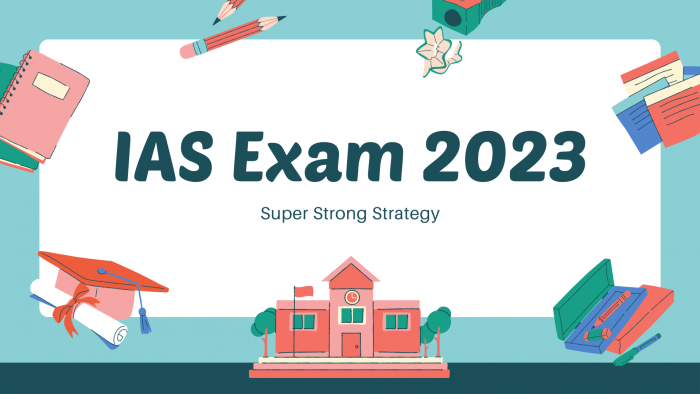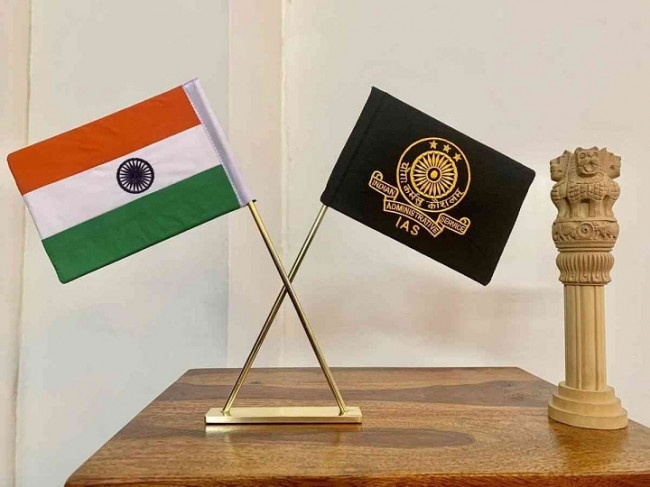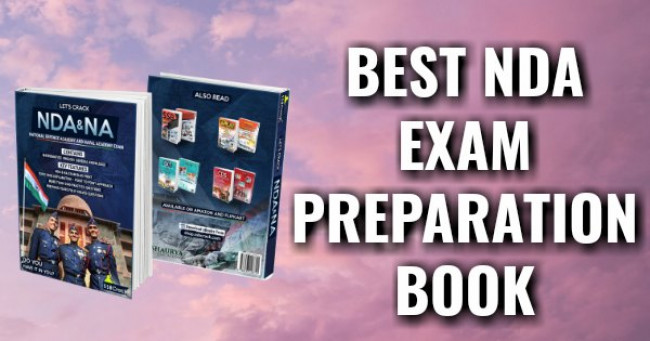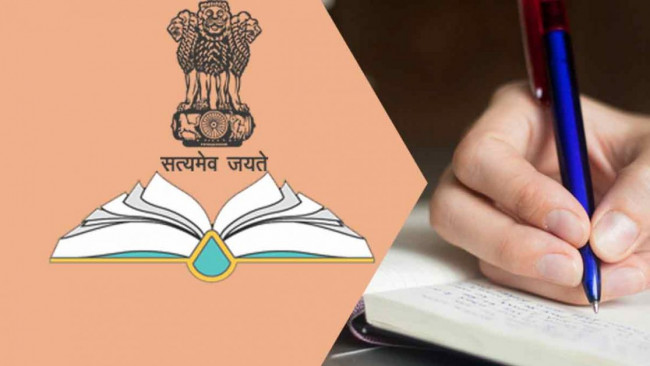How to become an IAS officer- Anyone can become an IAS officer after passing the Civil Services Examination. This exam is organized by the Union Public Service Commission. After appearing in the IAS exam and achieving the desired rank, one can aim to get recruited as an Indian Administrative Service officer. You can become an Indian Administrative Officer by clearing the Civil Services Examination conducted every year by the Union Public Service Commission (UPSC). This exam recruits officers in the civil services of the country which include IAS, IPS, IFS, IRS, and many other services. Among all the services, IAS is considered to be the most prestigious and most prestigious. This is the reason, the UPSC Civil Services Exam is popularly known as the 'IAS Exam'. Information about how to become an IAS officer, eligibility, functions and powers, training, and salary is provided here. Join the best IAS coaching in Dehradun.

What is an IAS officer?
IAS stands for Indian Administrative Service and is the administrative branch of All India Services. It was earlier known as Imperial Civil Service (ICS). To become an IAS officer in India, it is necessary to clear the Civil Services Examination.
- Indian Administrative Service i.e. IAS is a highly coveted career option for talented people in India. It is one of the All India Services.
- The Indian Administrative Service is the permanent bureaucracy of the executive branch of the government.
- Executive decisions taken by elected bodies of government are implemented by the Indian Administrative Service and allied services.
- Becoming an IAS officer is definitely a tough job. An individual who is determined to become an IAS officer will definitely succeed. It does not matter what the background of the candidate is. This is where your interest and hard work pay off and helps them achieve their dream of becoming an IAS officer.
- The government grants discretionary powers and privileges to IAS officers due to the wide range of responsibilities they handle.
- Apart from this, they acquire a higher social status due to the services rendered to society.
How to become an IAS officer?
To become an IAS officer, you have to clear the Civil Services Examination conducted by UPSC. It is one of the toughest exams in India though it is not impossible to crack. There are 3 stages in the Civil Services Examination, this stage is as follows-
1. UPSC Prelims (Preliminary Exam)
Two MCQ papers (General Studies, CSAT) i.e. there are 2 papers in this round-
Exam Type Duration Total Marks Negative Marking Number of Questions
General Studies I MCQs 2 Hours 200 Yes 100
General Studies I (CSAT) MCQs 2 Hours 200 Yes 80
How to become DGP | full form | Officer's work Rights Limit | Position and preparation information
2. UPSC Mains
There are nine theory papers (two essays, two languages, four general studies, and two optional papers)
Here you have to give 9 descriptive papers. There are four General Studies papers, two optional papers, two language papers (one English and one Indian language), and one essay paper. Their details are as follows-
Paper subject marks:
- Paper A An Indian Language 300
- Paper B English 300
- Paper 1 Essay 250
- Paper 2 GS Paper 1 250
- Paper 3 GS Paper 2 250
- Paper 4 GS Paper 3 250
- Paper 5 GS Paper 4 250
- Paper 6 Optional Paper 1 250
- Paper 7 Optional Paper 2 250
Out of these 9 papers, the language papers (English and Indian languages) are of qualifying nature and are not counted for merit ranking. You have to choose one optional subject from the list provided by UPSC for both optional papers. If you score the required cut-off in the mains exam, you will be called for UPSC Personality Test.
3. Interview – Personality Test
The exam process usually starts in the month of February, the details of which are given in the IAS notification.
Starting with around 5 lakh candidates in the first round, around 700-1000 are left at the end of the final round which is the interview. Out of them, only about a hundred can actually get the post of IAS.
Eligibility for IAS:
1. Age Limit for IAS Exam
Candidates must be 21 years and below 32 years of age as on August 1, 2022, i.e. the candidate must have been born not earlier than August 2, 1990, and not later than August 1, 2001.
| Category | Minimum Age Limit | Maximum Age Limit |
| Age Limit for General Category | 21 | 32 |
| EWS | 21 | 32 |
| SC/ST | 21 | 37 |
| OBC | 21 | 35 |
IAS Exam Age Relaxation and Number of Attempts
UPSC Exam Age Limit for General, SC/ST, OBC, and Other Categories
Category Age Limit - Upper Exemption No. of Attempts
general 32 6
OBC 35 9
SC/ST 37 Unlimited (up to age limit)
Disabled Defense Service Personnel 35 9
ex-serviceman 37 9
Persons with Benchmark Disability – EWS (Economically Weaker Section) 42 9
IAS Educational Qualification
The various educational requirements as per the IAS eligibility criteria are as follows-
- Candidate must have a degree from a government-recognized university or its equivalent qualification.
- Candidates who are in their final year or waiting for results are also eligible to appear for UPSC preliminary exam. All such candidates who are likely to appear in the IAS Examination must submit proof of having passed the said examination along with the application for the Main IAS Examination.
- Medical students who have passed the final year of MBBS but have not yet completed their internship. They are also eligible for IAS, however, along with applying for the mains exam, they will have to submit a certificate of completion of the syllabus including internship from the concerned authority of the university.
IAS Officer Functions
- An IAS officer does a variety of tasks depending on his posting and department.
- Most of the work involves an administrative charge of a district/region/department, policy formulation, policy implementation, heading public sector undertakings, etc.
- An IAS officer may also be sent on missions abroad, or directly assigned to a department under the central government.
- There is a provision for the deputation of IAS officers for a short tenure in private organizations as well.
- The functional roles of IAS officers depend on the type of assignments they get. They are given 3 types of assignments-
Farm
State Secretariat / Public Sector Undertakings
central secretariat
Powers and Responsibilities of IAS Officer:
An IAS officer is responsible for law and order and general administration in the area as part of his work as a civil servant. IAS officers generally perform the following functions:
- The duties and responsibilities of IAS officers change at different points in their careers.
- Early in their career, an IAS officer joins the state administration at the sub-divisional level and looks after law and order along with general administration and development work in the areas under his control as a sub-divisional magistrate.
- The post of District Officer also known as District Magistrate, District Collector, or Deputy Commissioner is the most respected and distinguished post held by the members of the service.
- At the district level, IAS officers are mainly delegated to district affairs including the implementation of development plans.
- During the normal course of their career, officers also work in state secretariats or heads of departments or public sector undertakings.
- To look after the day-to-day affairs of the government, including policy-making and implementation after consultation with the minister of the concerned ministry.
- Monitoring of implemented policies.
- Travel to places where policies are being implemented.
- Responsible for personal supervision of the expenditure of public money on the implementation of policies as IAS officers are answerable to the Parliament and State Legislatures for any indiscretions.
- IAS officers at various levels like Joint Secretary, and Deputy Secretary contribute to the policy-making and decision-making process and the final shape of the policy is given or the final decision is taken with the consent of the concerned minister or cabinet. the issue on the basis of importance.
Laws related to IAS officer power:
- Code of Criminal Procedure (1973): Sections 107, 108, 109, 110, 133, 144, and 176 lists the powers given to magistrates to maintain law and order.
- Tenancy law defines the powers of a collector in relation to revenue.
- The National Disaster Management Act lists the powers of chief secretaries and magistrates when directing disaster relief operations.
- Arms ActEssential, Drug License Act, Commodities Act, etc make up the power list of IAS officers to enforce the rules in various situations.
- These are the main laws, which are related to the powers of the IAS. However, there are about 300 laws, which define them on a case-by-case basis. These rules have also been provided in abbreviated form in the All India Service Rules. Which is updated from time to time by the Department of Personnel and Training.
IAS Officer Salary
After the implementation of the 7th Pay Commission, civil servants in India get a decent take-home salary package. The basic per month salary of an IAS officer starts from Rs 56,100 (TA, DA, and HRA extra) and can go up to Rs 2500,00 for Cabinet Secretary.
Life of an IAS officer
How to become an IAS officer- IAS is the perfect opportunity for those who want to make a positive impact on the lives of their fellow citizens. Bringing electricity to the homes of the poor who don't have access, providing health and sanitation facilities to them, and building roads to connect far-flung places, can all be part of your IAS duties.
A very common question regarding the officers of the Indian Administrative Service is about their dress. For your information, let us tell you that there is no prescribed uniform for IAS officers. He has to be in formal dress for every official function. Whereas the dress of IPS officers is fixed.
IAS Officer Training
Candidates who successfully clear the UPSC IAS exam get their first taste of life as an IAS officer as they join the Lal Bahadur Shastri National Academy of Administration (LBSNAA) for initial training.
The daily life of an IAS officer during training is very disciplined.
The following schedule is generally followed in LBSNAA-
- 6 a.m. - Morning exercise/riding training for 60 minutes
- 7 am to 9 am – free time for morning activities
- From 9:30 am – 8-10 hours of academic activity including lectures, sports, and extracurricular activities.
- Officer trainees are left free before and after dinner to socialize and prepare for the next day. Outdoor activities such as trekking in the surrounding rural areas to learn to withstand adversity and understand the lifestyle of rural India are an integral part of the training.
- Bharat Darshan (a study tour of India) is also included in the training of an IAS officer.
- Once a trainee graduates as an IAS officer, their schedule changes according to the rank allotted to them.
- A typical day for an officer posted in the field begins at 9 a.m. and includes going through various daily reports, monitoring various daily functions of the department or district, and visiting various areas to review the implementation of development activities and meetings. includes visiting.
- All these activities can go on till late evening and mostly end by around 9 pm.
- During emergencies like natural calamities, riots, etc. an IAS officer may work continuously beyond normal duty hours to coordinate response and relief teams.















